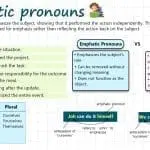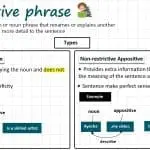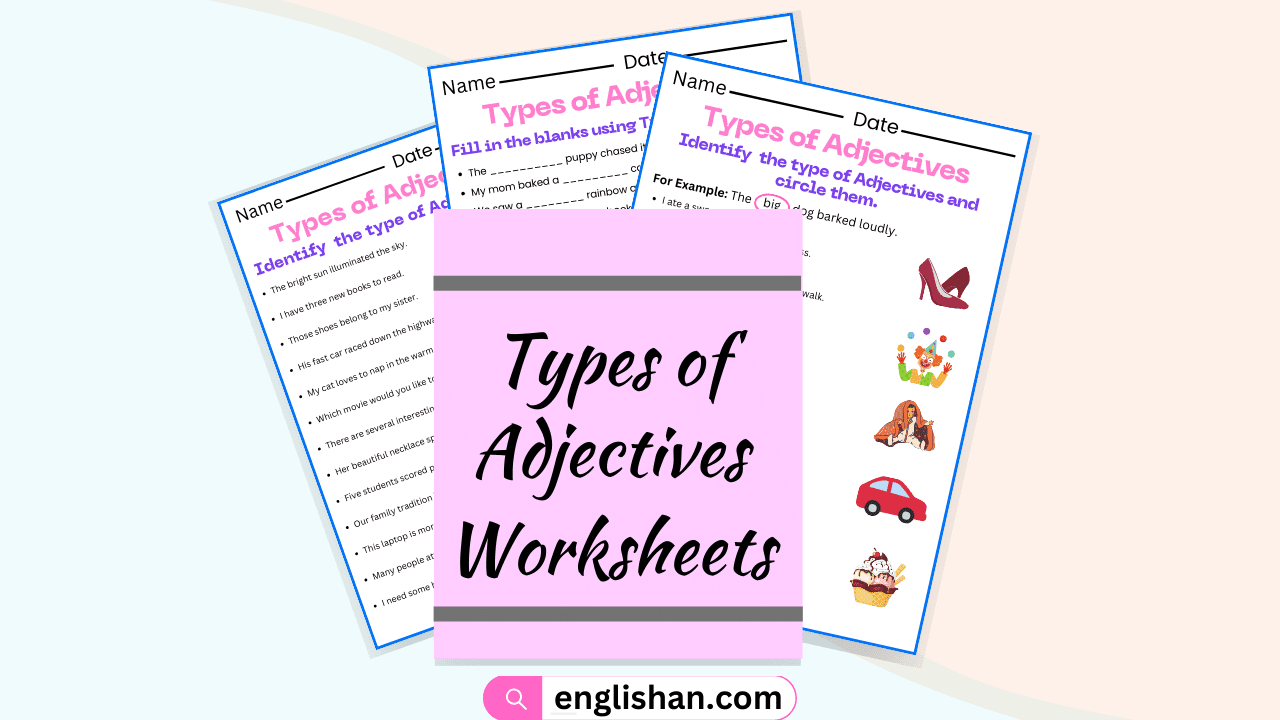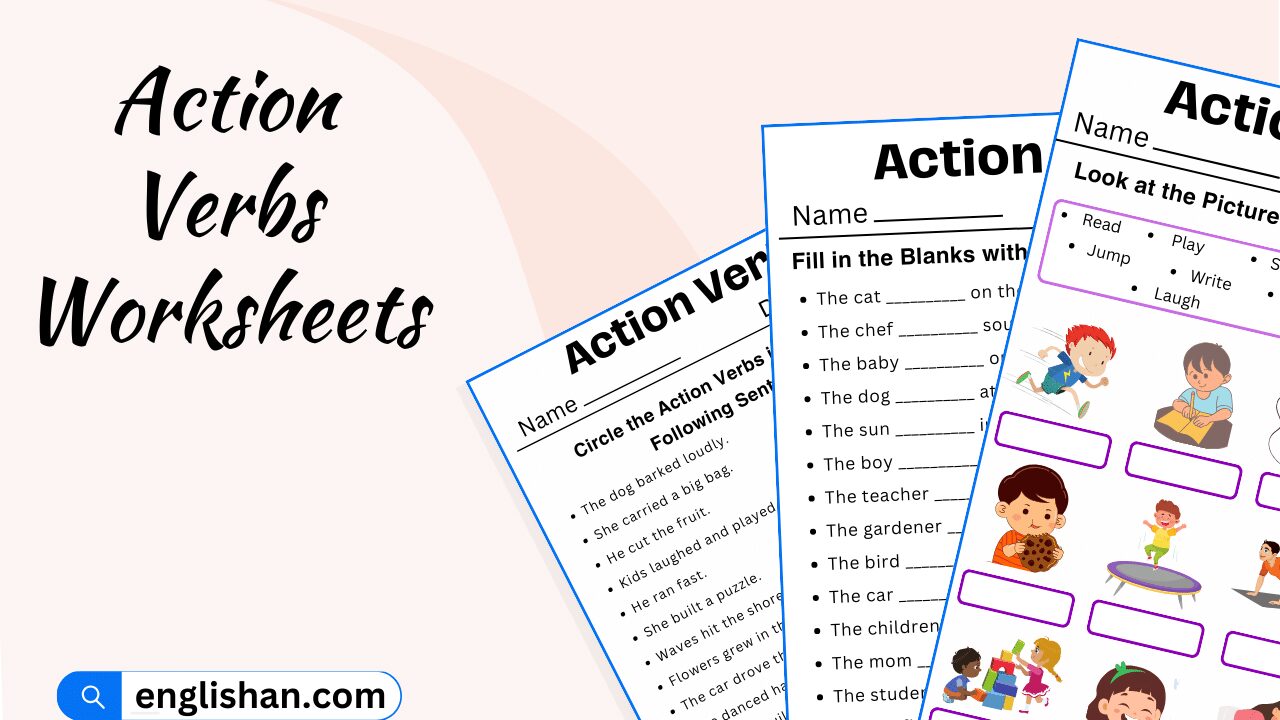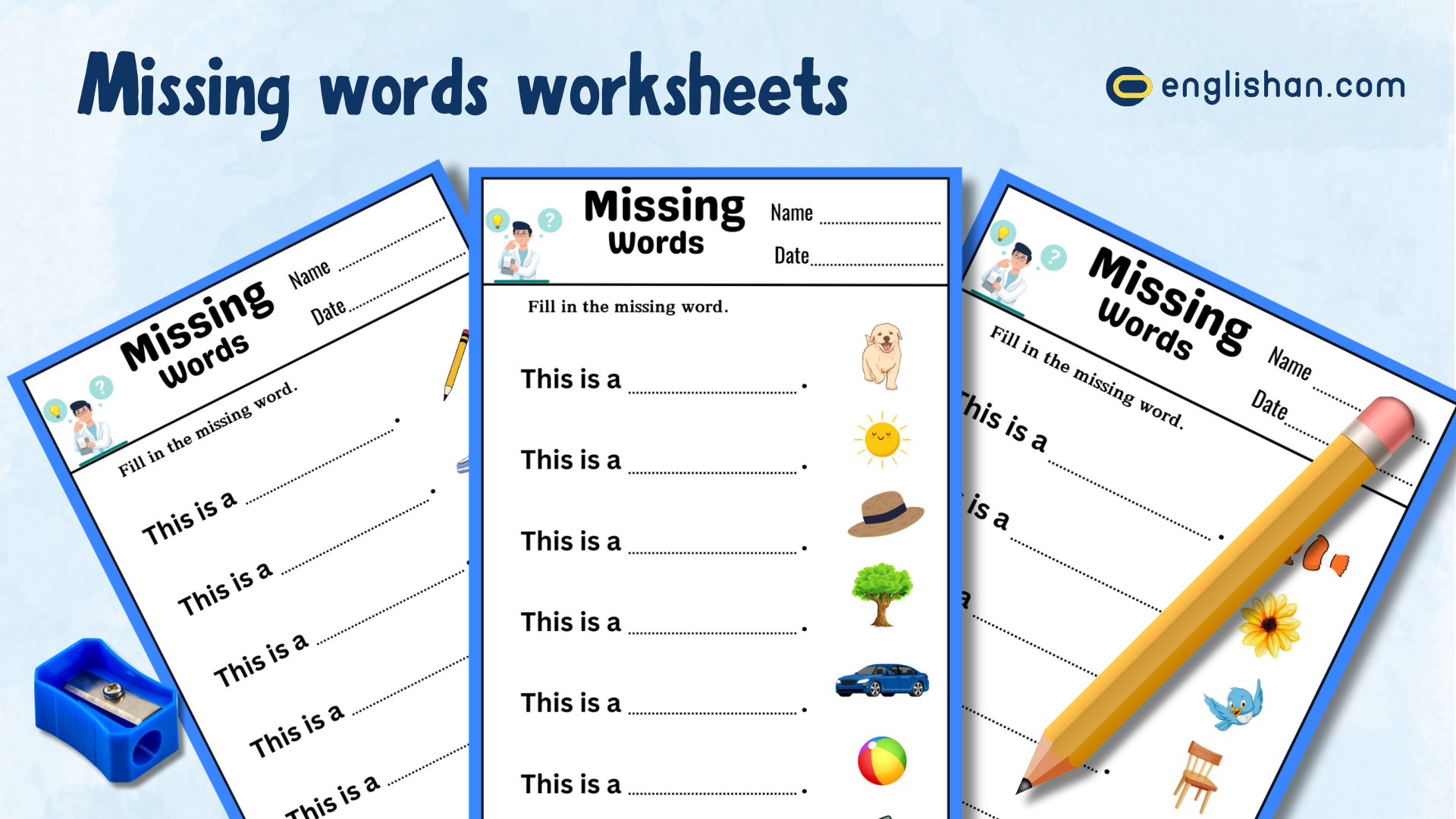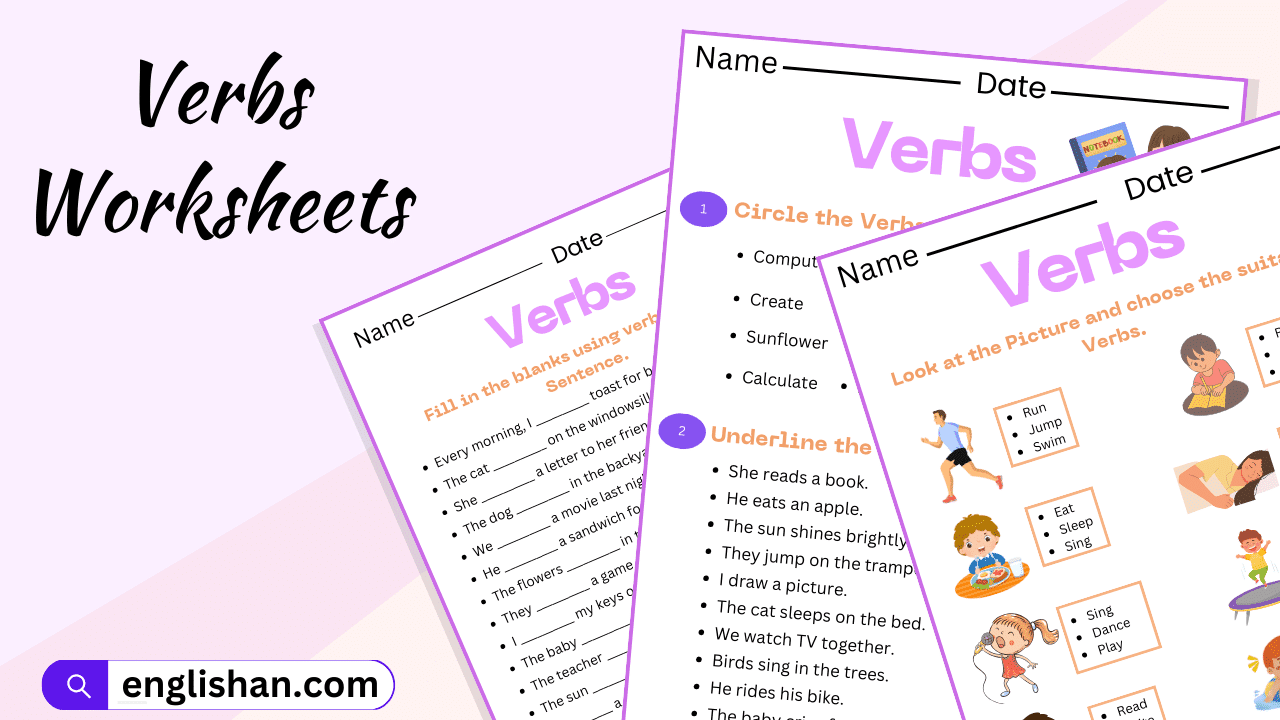Modal adverbs help show how sure, necessary, or possible something is in a sentence. These words give more detail to the verb and make the meaning stronger or clearer. Learning how to use them can improve both writing and speaking skills.
In this post, you’ll find worksheets made to help students practice modal adverbs in an easy way. These activities support sentence-building and teach how to use words like probably, certainly, and clearly in the right place.
This worksheet will help you choose the correct modal adverbs to complete each sentence. These adverbs show the certainty, possibility, or strength of an action or idea.
- She will _______ come to the party.
- He is _______ going to pass the exam.
- They _______ forgot to bring the tickets.
- You are _______ right about the solution.
- We will _______ have a meeting next week.
- The package will _______ arrive tomorrow.
- I can _______ finish this project on time.
- She is _______ the best candidate for the job.
- He _______ didn’t understand the instructions.
- They will _______ arrive by the end of the day.
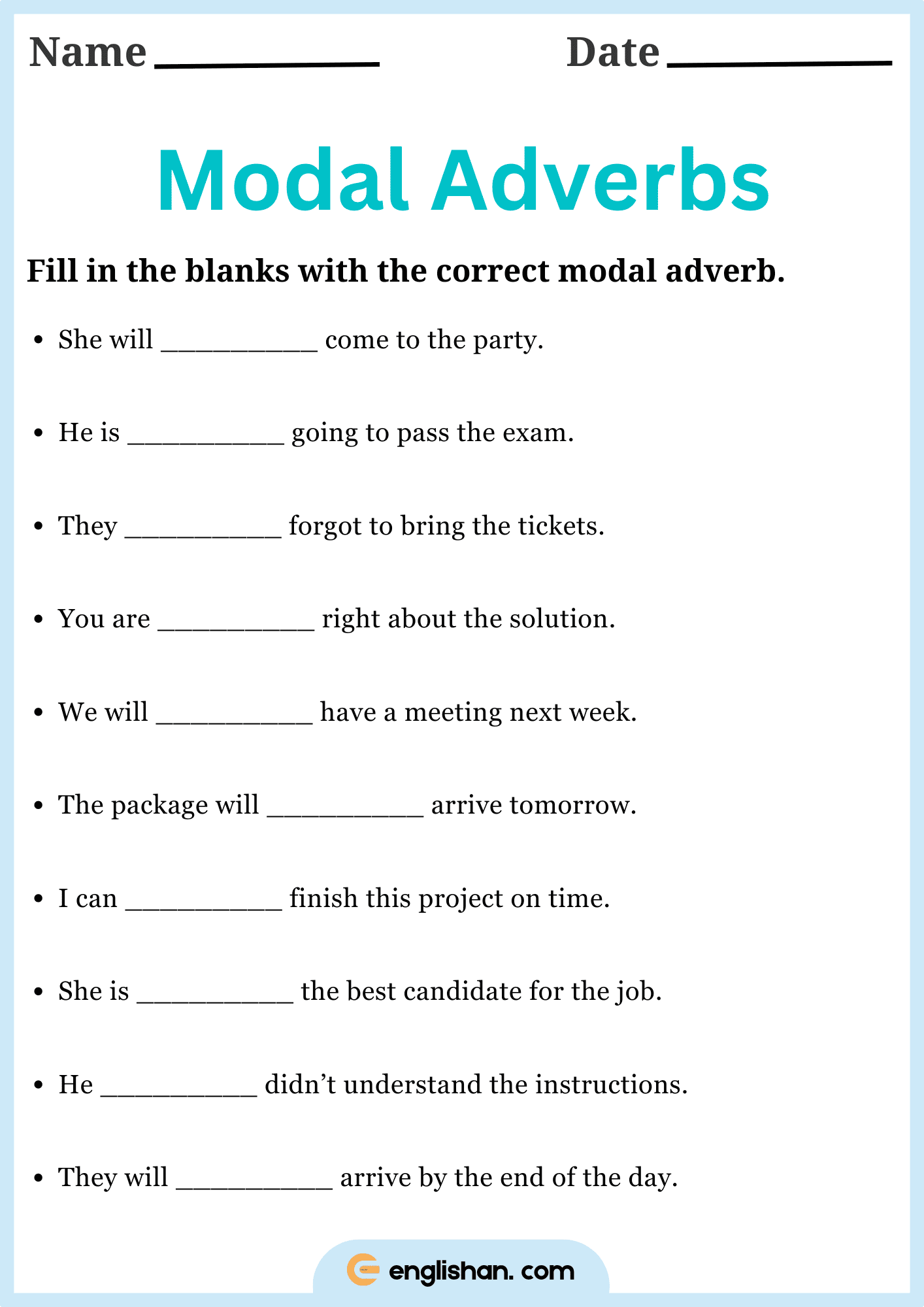
Worksheet 2: Multiple Choice Quiz
This worksheet will test your ability to choose the correct modal adverb that fits into each sentence context.
Select the correct modal adverb from the options below:
- The weather forecast says it will _______ rain tomorrow.
(a) certainly, (b) maybe, (c) never, (d) probably
- She will _______ call you later.
(a) likely, (b) always, (c) maybe, (d) certainly
- We are _______ late for the meeting.
(a) obviously, (b) possibly, (c) definitely, (d) probably
- He _______ forgot to bring the tickets.
(a) surely, (b) likely, (c) clearly, (d) never
- They _______ finish the task by tomorrow.
(a) will, (b) might, (c) probably, (d) certainly
- I will _______ attend the conference.
(a) maybe, (b) definitely, (c) possibly, (d) usually
- You are _______ right about this.
(a) probably, (b) maybe, (c) certainly, (d) hardly
- The results will _______ be ready by Monday.
(a) possibly, (b) certainly, (c) never, (d) always
- We should _______ inform them about the meeting.
(a) clearly, (b) likely, (c) possibly, (d) probably
- He is _______ the best candidate for the position.
(a) surely, (b) clearly, (c) hardly, (d) likely
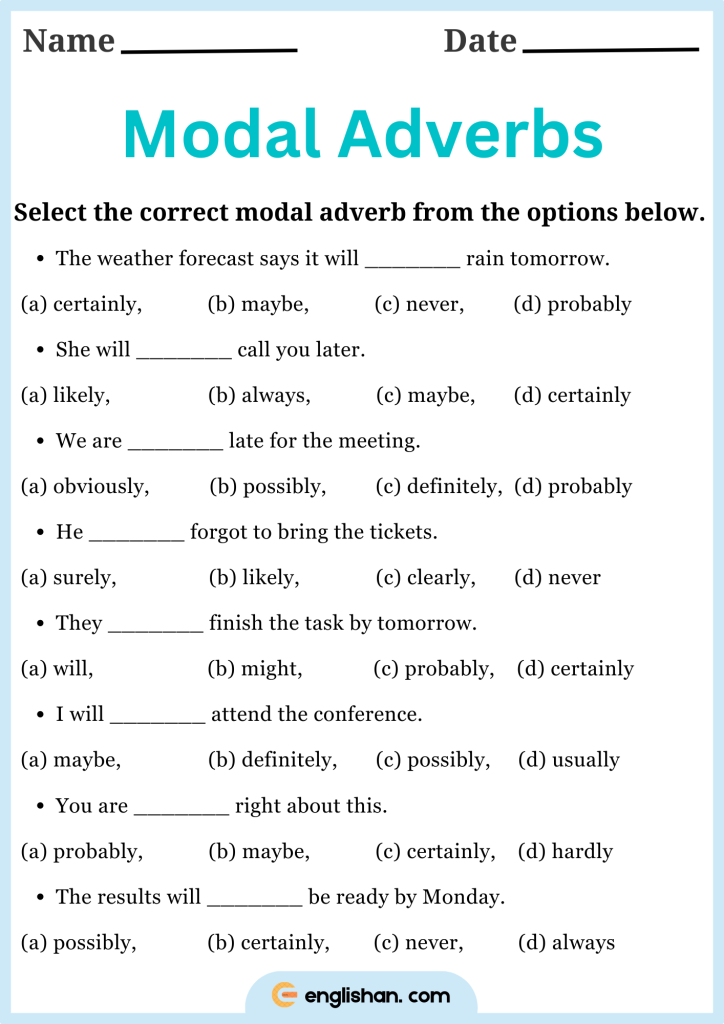
Worksheet 3: Sentence Construction Using Modal Adverbs
In this worksheet, practice constructing sentences by adding the correct modal adverb to provide a clear sense of likelihood or certainty.
Add the correct modal adverb to each sentence (definitely, certainly, probably, clearly, or possibly):
- The presentation will be ready by tomorrow.
- She understood the instructions correctly.
- They will attend the meeting next week.
- He finished the task before the deadline.
- I will bring the documents to the office.
- She is going to win the competition.
- They forgot to send the email.
- He will complete the project on time.
- I will be available for the meeting.
- She answered the question correctly.
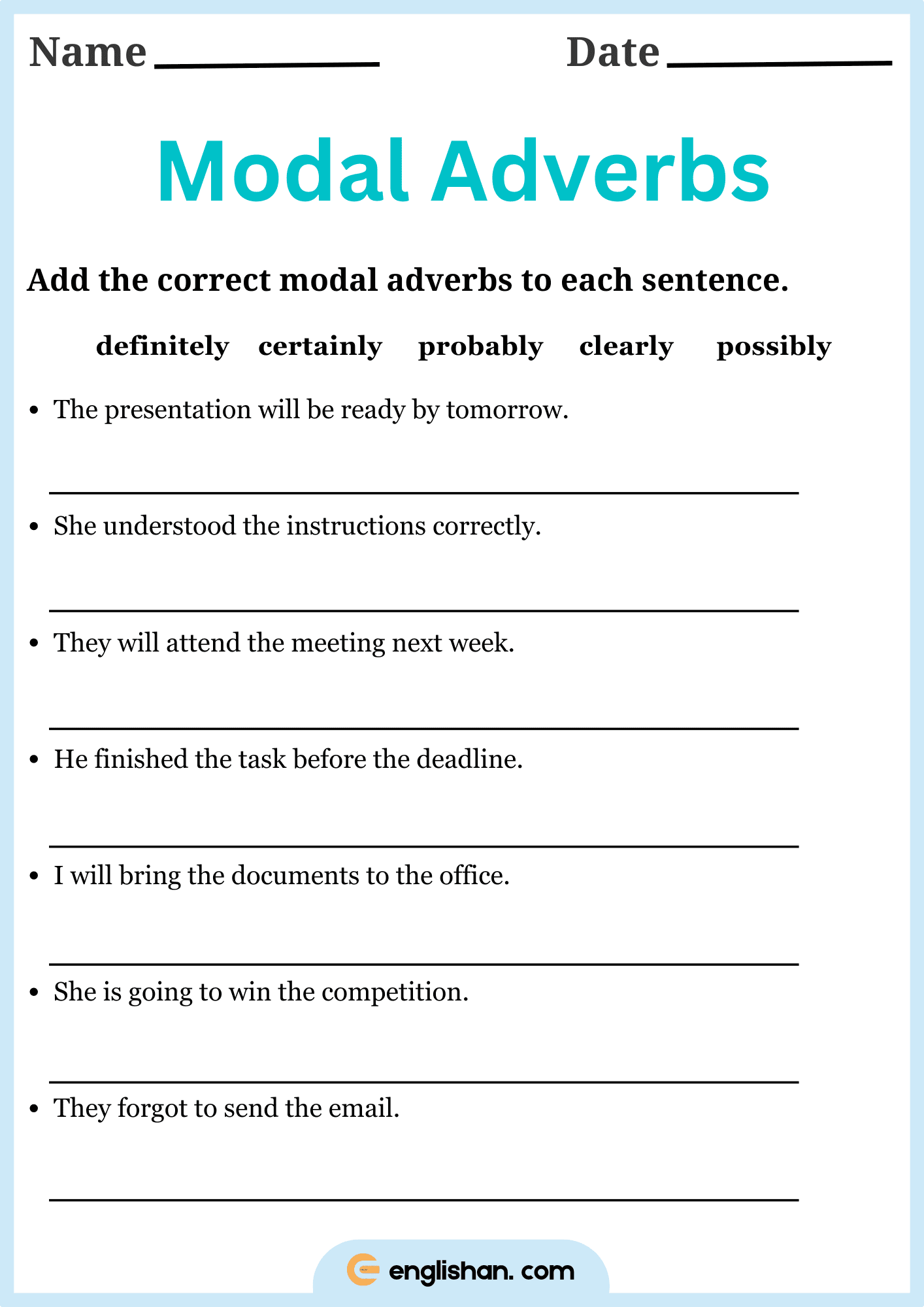
Worksheet 4: Matching Activity for Modal Adverbs
Match the modal adverbs to their correct meanings in this worksheet. This exercise will test your ability to identify and understand the function of each modal adverb in terms of certainty.
| Modal Adverb | Meaning |
|---|---|
| 1. Probably | a. A strong likelihood |
| 2. Certainly | b. A possibility |
| 3. Definitely | c. Without any doubt |
| 4. Possibly | d. Likely but not guaranteed |
| 5. Clearly | e. In an obvious way |
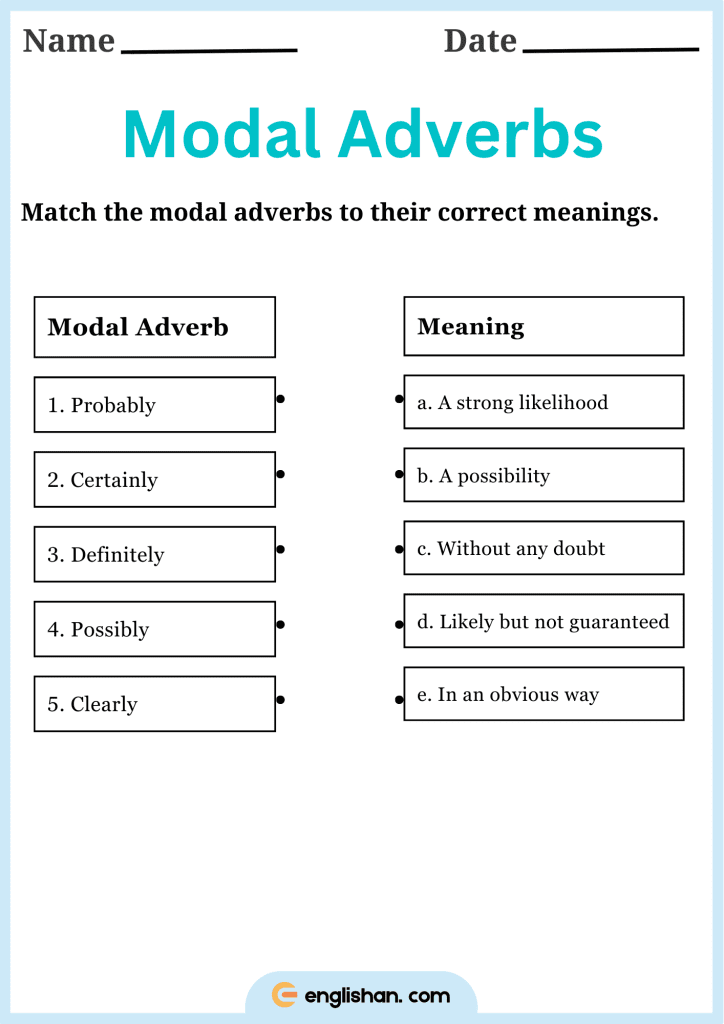
| Question | Fill-in-the-Blank | Multiple Choice | Sentence Construction | Matching Activity |
|---|---|---|---|---|
| 1 | definitely | (d) | probably | d |
| 2 | certainly | (a) | clearly | a |
| 3 | probably | (c) | certainly | c |
| 4 | absolutely | (a) | definitely | b |
| 5 | likely | (c) | probably | e |
| 6 | certainly | (b) | likely | – |
| 7 | probably | (c) | obviously | – |
| 8 | certainly | (b) | definitely | – |
| 9 | clearly | (d) | certainly | – |
| 10 | definitely | (b) | clearly | – |
You May Also Like
- Relative Adverbs Worksheets
- Adverb vs Adjective Worksheets
- Who and Which Worksheets
- Types of Adjectives Worksheets

